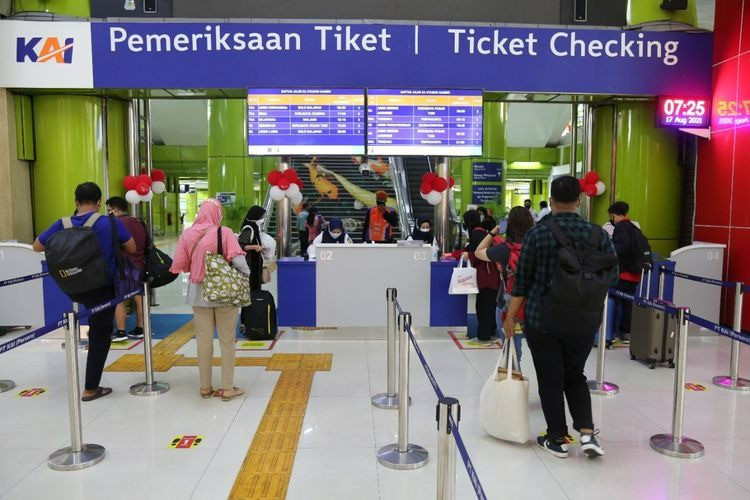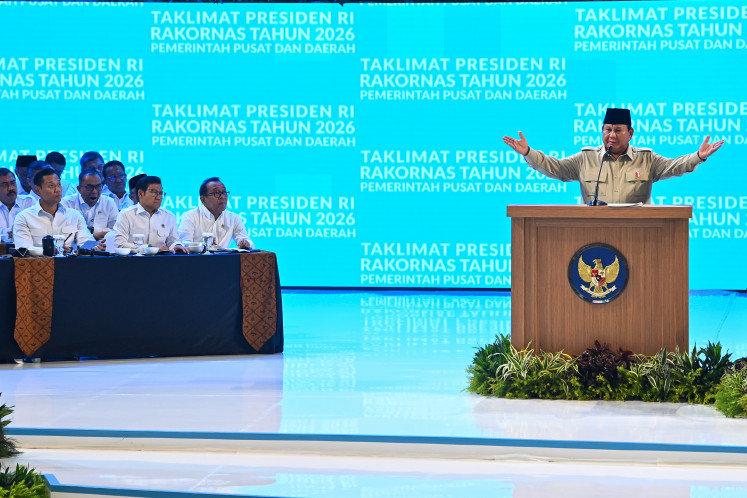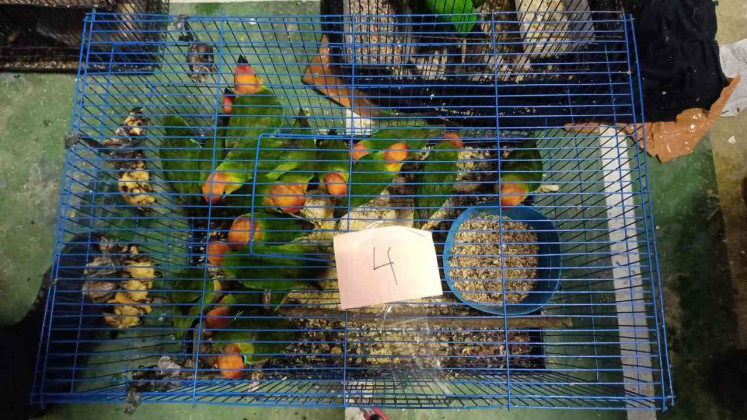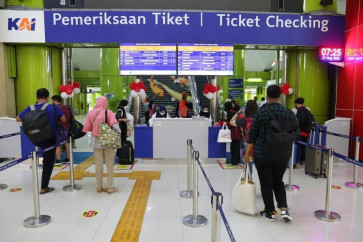Popular Reads
Top Results
Can't find what you're looking for?
View all search resultsPopular Reads
Top Results
Can't find what you're looking for?
View all search resultsNew regulation sends mixed signals on holiday curbs
Under the regulation, which was issued by Home Minister Tito Karnavian on Monday, the central government has asked regional administrations to urge the public to limit their “nonessential” mobility and tighten border restrictions in anticipation of an influx of Indonesian migrant workers returning from abroad over the holiday period.
Change text size
Gift Premium Articles
to Anyone
T
he government has issued a new regulation that outlines its strategy for preventing another wave of COVID-19 cases during the year-end holiday, which includes calling on the public to refrain from traveling during the festive period.
Under the regulation, which was issued by Home Minister Tito Karnavian on Monday, the central government has asked regional administrations to urge the public to limit their “nonessential” mobility and tighten border restrictions in anticipation of an influx of Indonesian migrant workers returning from abroad over the holiday period.
The regulation, which will be in force between Dec. 24 and Jan. 2, 2022, also mandates the implementation of level 3 public activity restrictions (PPKM) – the second-most stringent level of the four-tiered curbs – for specific places, such as tourist destinations, churches and shopping malls, as well as certain activities such as wedding receptions.
However, unlike year-end restrictions imposed in 2020, which saw closures of the country’s main thoroughfares, the newly issued instruction does not mandate similar measures, sending a mixed signal to the public as more stringent curbs were expected following the government’s announcement last week of nationwide level 3 PPKM over the year-end holiday period.
In lieu of tighter travel curbs, the government has set up a number of health precautions geared to limit public mobility.
“In general, the odd-even policy [will be imposed to limit] public mobility. Meanwhile, the requirement to present a negative COVID-19 test for [essential] travel and using the PeduliLindungi app when entering public facilities will remain,” said National COVID-19 task force spokesperson Wiku Adisasmito on Thursday.
He went on to add that public order agencies (Satpol PP), the police and military personnel would set up checkpoints, particularly near residential areas, to monitor compliance with health protocols.


















